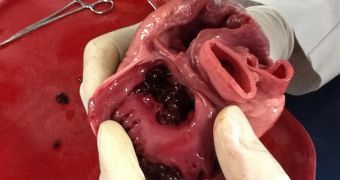Barring pollution, it's been historically proven that the more a society's level of technology advances, the better the life becomes for citizens in general. However, there are some things that are coming to light due to the latest happenings in the newest fields of research.
Say that today you have a desktop computer, a car, and a driver's license to use it. Tomorrow you may have a wall-sized TV but no PC in the house, because you've got a cloud-based virtual system you only need a display and Internet to access.
More importantly, you might have swapped your car for a self-driving one that, coincidentally, can be used just fine by the family and friends who don't have a driver's license of their own.
Now, I'll be the first to say we're far from that ideal tech level, if the word even applies. But let's assume cars and other self-directed things like robots and appliances have become the norm. And that the frequency of lethal accidents drastically drops because of them.
There actually is a drawback to that, as bizarre as it sounds.
No more organ donors
MakerBot founder Bre Pettis, of all people, brought up this issue. As disheartening as it is, the main source of organs are people who die in car accidents.
Perfecting self-driving vehicles will lead to a much lower frequency of car crashes, and by extension, longer and longer waiting lists for sick people waiting for an organ donor to become available.
Eventually, the lists will become so long that ill people will take their last breath from simply having to wait too long.
What does this mean?
The solution to this “drawback” of safer automotive transportation, 3D printed organs, could use some serious government and financial backing right about now.
If the world plays its cards right, it could make sure that 3D printed, viable, implantable organs like livers, kidneys, and even hearts will be ready for human trials by the time the organ donor lists become fatally long.
Unfortunately, we do not, in fact, live in an ideal world, which means this (research funds for 3D printed organs that is) probably won't happen. Same for jar-grown transplants and whatever other methods of preserving and saving lives are being looked into.
Researchers will probably have to get by on tiny grants and the money experts themselves can scrape up. Most of the research will have to be put on hold for quite a few years before the scarcity of organ donors starts to put pressure on finding alternatives.
Why? Because of willful blindness and opportunism. And so I can finally highlight an oft overlooked problem: the fields of science and technology that could enrich and save the lives of people around the world aren't advancing in a balanced fashion.
Indeed, setbacks seem to happen suspiciously often, to the point where the “progress” in certain fields can be described as backwards. We've seen it before. Just look at electric vehicles. they would have already been common today if the companies that make income from fossil fuels didn't have so much weight to throw around a few decades ago, when the first such car was designed.
Now, it's looking as though something similar is going to happen to the field of artificially produced organs as well. It almost makes me leery of thinking of the “drawbacks” that other, wondrous breakthroughs could have – like ultrasonic metal molding and a cure for cancer, not that there is such a thing yet – simply due to other fields of research lagging behind because of conflicts of interest.

 14 DAY TRIAL //
14 DAY TRIAL //